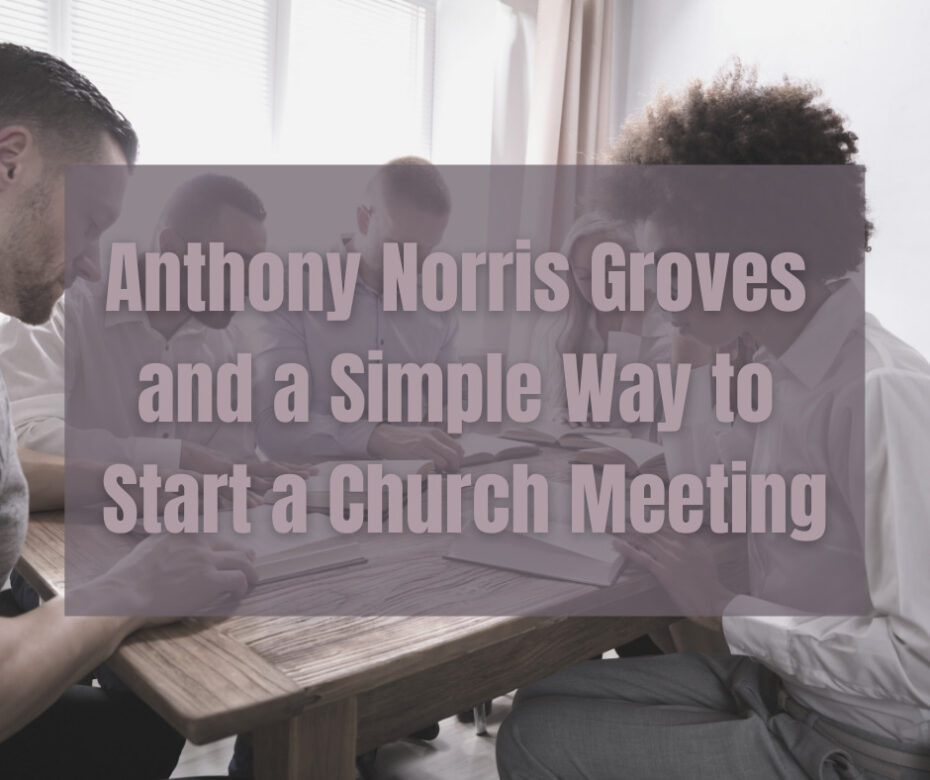One of the most frequently asked questions we get is what to do if there is no Free Grace church near you.
And one of our most frequently given answers is, “Start a meeting in your home.”
People are intimidated by that prospect. Why?
It may be because we have a big, complicated view of what “church” should be. You think of a formal affair that requires buildings and Sunday school rooms and children’s programs and equipment and budgets and stages and players and properly trained lecturers.
In 1827, Anthony Norris Groves wanted to be a missionary to Persia, but he had a growing conviction against ordination. He asked the Anglican Church Mission Society if they would send him as a layman. They said he could go, but in that case, he could not celebrate the Lord’s Supper. To Groves, that posed a serious problem. If he went to a place with few or no Christians, where could he find a clergyman to celebrate communion?
But when Groves went to Scripture, something suddenly became clear: “the thought was brought to my mind that ordination of any kind to preach the gospel is no requirement of scripture. To me it was the removal of a mountain” (Dann, Father of Faith Missions, p. 49).
“From then on,” Groves’ biographer writes, “without the authorization or support of any denomination, he would preach wherever the Lord led him, and take the Lord’s Supper with any who loved Christ” (Dann, Father of Faith Missions, p. 49).
That not only impacted his view of missions but also of how to meet together as believers. As Groves talked about these issues with his wife and friends, they made a decision:
They would meet simply as a company of disciples, to share together in the apostles’ teaching, fellowship, prayer and breaking of bread, without ministers, sacraments or rules of any kind (Dann, Father of Faith Missions, p. 49).
The band was small at first. But as word spread, they learned of like-minded individuals who also met together:
By November 1829, Bellett, Cronin, Darby and another friend, Francis Hutchinson, had started meeting regularly to “break bread” at Hutchinson’s rather large dwelling in Fitzwilliam Square (Dann, Father of Faith Missions, p. 50).
They were not the only people who hungered for a more Biblical Christian meeting. Soon they were joined by more people:
Eventually they decided, in token of their unity in Christ, to meet in one of their homes and celebrate the Lord’s Supper together. So blessed was this hour of worship that they began to meet regularly and before long others, both men and women, were added to their number. Their meetings were deliberately informal, like those described in the New Testament (Dann, Father of Faith Missions, p. 50).
Doesn’t sound too hard, does it? There’s nothing particularly complicated about such a meeting. It requires no special planning, training, or equipment. At a minimum, you just “break bread” and discuss the Lord together.
Several of these men later grew to become leaders in the Plymouth Brethren movement. And as you know, two hundred years later, Brethren meetings (and other meetings inspired by them) are found worldwide. But it started with friends simply breaking bread together.
The challenge of promoting a Biblical Free Grace soteriology in your hometown may start with you recovering a more Biblical ecclesiology.


